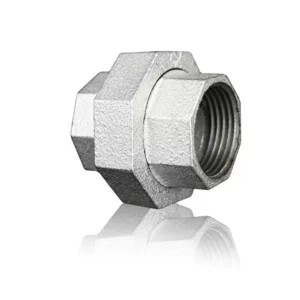Malleable iron pipes and carbon steel fittings are available in a range of sizes and dimensions to accommodate different plumbing and piping needs.
Here are some common sizes and dimensions available in the market:
Malleable Iron Pipes:
1/8 inch (0.125 inches) NPS to 6 inches (6.0 inches) NPS: Malleable iron pipes are available in various nominal pipe sizes (NPS), starting from 1/8 inch up to 6 inches. These sizes represent the inner diameter of the pipe.
Carbon Steel Fittings:
1/8 inch (0.125 inches) NPS to 48 inches (48.0 inches) NPS: Carbon steel fittings are also available in various NPS sizes, ranging from 1/8 inch to 48 inches. These sizes correspond to the inner diameter of the fitting.
In addition to the NPS sizes, malleable iron pipes and carbon steel fittings are available in different forms and configurations, including elbows, tees, couplings, unions, caps, crosses, reducers, and more. Each fitting type typically follows standard dimensions and specifications to ensure compatibility and ease of installation.
It’s important to note that the availability of specific sizes and dimensions may vary depending on the region, industry standards, and manufacturers. Therefore, it’s advisable to consult local plumbing codes, industry guidelines, or contact suppliers to obtain accurate and up-to-date information on the sizes and dimensions of malleable iron pipes and carbon steel fittings available in your area.
Additionally, it’s essential to consider malleable iron pipe and carbon steel fittings the application requirements, system specifications, and compatibility with other components when selecting the appropriate sizes and dimensions for your plumbing project.
What are the advantages of using malleable iron pipes and carbon steel fittings over other materials in plumbing applications?
Malleable iron pipes and carbon steel fittings offer several advantages over other materials in plumbing applications.
Here are some of their key benefits:
Strength and Durability: Malleable iron pipes and carbon steel fittings are known for their exceptional strength and durability. They can withstand high-pressure and heavy-duty applications, making them suitable for various plumbing systems.
Corrosion Resistance: Malleable iron pipes and carbon steel fittings are often coated or galvanized to provide corrosion resistance. This protective layer helps prevent rust and extends the lifespan of the components, making them suitable for both indoor and outdoor plumbing installations.
Wide Range of Sizes and Configurations: Malleable iron pipes and carbon steel fittings are available in a wide range of sizes and configurations. This versatility allows for easy customization and adaptation to different plumbing system requirements.
Compatibility: Malleable iron pipes and carbon steel fittings are compatible with various piping systems, including threaded connections. Their standardized dimensions and threading ensure a secure and leak-free connection with other plumbing components.
Fire Resistance: Carbon steel fittings, in particular, have excellent fire resistance properties. They can withstand high temperatures and are often used in fire protection systems, making them a reliable choice for plumbing applications in buildings and structures.
Cost-Effective: Malleable iron pipes and carbon steel fittings offer a cost-effective solution for plumbing projects. They are generally more affordable compared to materials like stainless steel or copper, making them a popular choice for budget-conscious applications.
Ease of Installation: Malleable iron pipes and carbon steel fittings are relatively easy to install. Their threaded connections allow for straightforward assembly, reducing installation time and labor costs.
Wide Availability: Malleable iron pipes and carbon steel fittings are widely available in the market. They can be easily sourced from plumbing suppliers and distributors, ensuring accessibility for various plumbing projects.
It’s important to note that the selection of plumbing materials should consider specific project requirements, local codes, and industry standards. While malleable iron pipes and carbon steel fittings offer numerous advantages, other materials may be more suitable for certain applications, such as copper for potable water systems or PVC for non-corrosive environments. Consulting with plumbing professionals or engineers can help determine the best material choice for a specific plumbing project.
